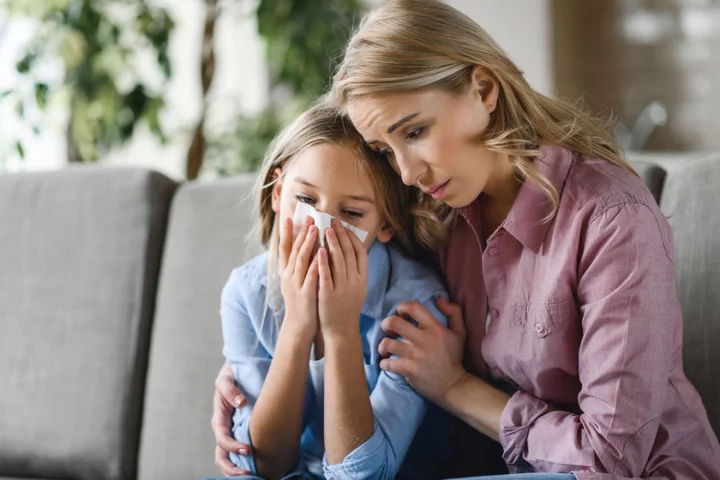
How to protect your kids and yourself from back-to-school colds
While your child may be excited about returning to school this September, there’s also a little anxiety about the one thing that can put a spanner in the works: a cold. As Dr Dave Nichols, of MyHealthChecked, an at-home wellness testing company, puts it: “The return to school following the summer holidays often coincides with a rise in a number of respiratory illnesses, including the common cold.” Common symptoms include a cough, sore throat, nasal irritation, nasal discharge (rhinorrhoea), a fever or generalised malaise, explains Nichols. “While the common cold can affect all population groups, the National Institute for Health and Care Excellence report this to be far higher amongst children, who experience an average of five to eight colds per year.” Nichols continues: “Adults who have regular contact with children are also seen to have colds more frequently.” He says children are especially important in the transmission, acting as reservoirs for the infection as they have fewer antibodies and a more immature immune system, making them more susceptible to the common cold. “Direct contact with the skin or hand contact with an infected object are key ways the virus is transmitted,” notes Nichols. “Which explains why numbers seen amongst children are higher, as they are more likely to have close contact with each other in nursery and school.” While there is no cure for the common cold, he says prevention remains crucial in order to protect ourselves from illness. Here are some top tips to reduce the chances of catching a cold… Adopt good hygiene measures Basic good hygiene measures are an important way of reducing the transmission of viruses, says Nichols. Wash hands frequently with warm soap and water if you (or the kids) have symptoms, or have come into close contact with someone who has symptoms. He says to avoid sharing items within households, such as towels, can also help. Get into a physical exercise routine Ensuring regular physical exercise is important because it has been shown to reduce the chances of people developing viral illnesses such as the common cold, advises Nichols. “Exercise plays an important role in boosting immunity by increasing the circulation of some important immune cells, which fight against infection,” says Nichols. “It also plays a key role in helping to reduce stress and the release of stress-related hormones within the body, which has an important impact.” Eat healthy foods to maximise your wellbeing “Eating well will help support a good functioning immune system,” says Dr Emeka Okorocha, medical doctor and TV personality. “The body needs a range of nutrients and vitamins to stay strong and healthy, and prevent the development of disease.” He highlights the following vitamins… “Vitamin A, which is converted from beta carotene found in vegetables such as sweet potatoes and beetroots, is very good for helping support the mucosal lining in your nose and lungs – and helps defend against infection. “Vitamin C has always been considered a good preventative vitamin from catching colds, this can be found naturally in fruits like strawberries, blueberries, blackberries and raspberries – and in leafy vegetables like spinach as well as broccoli, peppers and peas. “Vitamin D that many of us get from natural sunlight is also ideal for overall health – and studies have shown that people lacking in vitamin D are more likely to succumb to infection.” In winter months, when there are lower levels of natural sunlight, he says you can obtain vitamin D from foods such as salmon, mackerel, eggs, and mushrooms. Berries are very beneficial Okorocha continues: “I love fresh berries – strawberries, raspberries and blueberries, for example, are high in antioxidants and contain lots of vitamin C, which helps our bodies to produce antibodies that keep us from getting sick. “Berries are also high in flavonoids which help protect cells in our immune system by promoting activation and secretory processes within cells.” He says studies have indicated that regularly eating fruits such as blueberries may decrease your likelihood of catching a cold. Get adequate rest and sleep Ensuring you’re getting adequate amounts of rest and sleep is crucial in helping to reduce your risk of becoming unwell, urges Nichols. “A healthy adult needs between seven to nine hours of sleep per night, with children requiring longer,” says Nichols. “Sleep quality has been shown to be an important predictor of immunity, with those regularly sleeping under the recommended amounts more likely to develop a cold. “Improving your sleeping pattern is therefore an important way to reduce the chances of becoming unwell.” Read More Former royal chef explains why Prince William and Kate’s children don’t eat with them ‘You think it’s going to be a money making machine’: How modern life killed the hobby People defend bride after father-in-law explains why he left wedding early 4 hacks to get teens off the sofa and get active – as study warns of heart damage Elle King opens up about her ‘deep depression’ amid two-year postpartum journey BBC Radio 2’s Tony Blackburn reveals he had sepsis and pneumonia in health update
2023-08-25 15:52
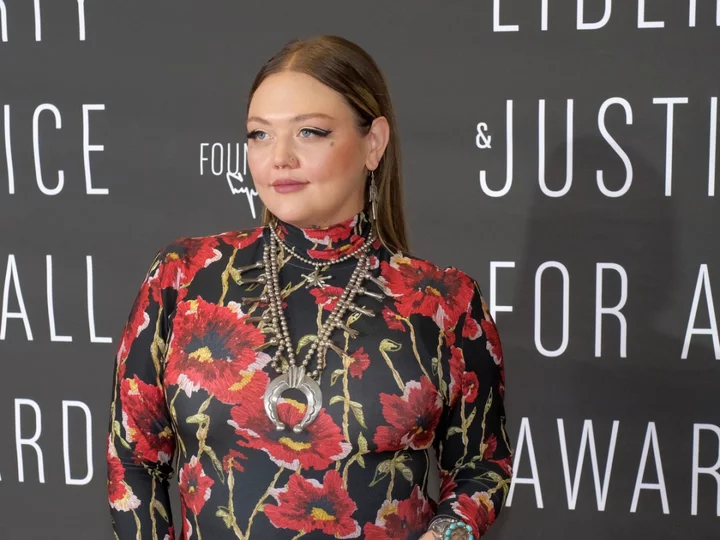
Elle King opens up about her ‘deep depression’ during pregnancy and two-year postpartum journey
Elle King has spoken out about suffering with a “deep depression” during and after her pregnancy. The singer, 34, took to Instagram on Wednesday (23 August) to speak candidly about her mental health, two years after welcoming her son, Lucky, who she shares with tattoo artist Daniel Tooker. Her post included different videos of herself, in which she was working out, cleaning her skin, or singing on a stage. In the caption, she went on to reflect on her weight loss journey throughout the last two years, and acknowledged that she still plans to continue her workout routine. “I am making this post to share my journey from 284 lbs at 5‘3 from pregnancy 2021 - now 2023,” she wrote. “It doesn’t happen overnight. It didn’t even happen in a year for me. In fact, it’s an ongoing still working towards ever changing goals kinda thing.” King continued her post by opening up about her mental health struggles - both during and after her pregnancy - which included postpartum depression. “I fell into a very deep depression during my pregnancy. I also didn’t even realise how intense postpartum depression is and was until I very slowly began to crawl out,” she wrote. “I felt trapped in my body.” While symptoms of postpartum depression can vary, some of them can include difficulty bonding with your baby, withdrawing from loved ones, and a loss of appetite, according to the Mayo Clinic. In her Instagram caption, King went on to explain that amid her symptoms of postpartum depression, she started working out more. She then acknowledged that she’s now seen her body get “stronger” over time. “Metabolic workouts. Light cardio to warm up my body, my lungs, my voice, and my spirit. I am a creature of habit, so I changed my f***ing habits,” she wrote. “Every few weeks I feel my body getting stronger. I add more workouts.” The “Ex’s & Oh’s” singer expressed that while she wanted to lose weight after welcoming her baby, there was “so much more” insentive since her brain “functions better on the days” that she moves her body. She also described how she’s now embraced the way that her body looks. “Some days I count stretch marks. Some days I hug myself and say thank you to my body. Today is a kind day. I’ve been tiny, I’ve been huge, BUT RIGHT NOW I’M HEALTHY,” she continued. “I can’t believe that I even have to say this, but no, I am not on any weight loss medication.” She added that she’s had a few health conditions over the years, including being pre-diabetic and suffering with Polycystic ovary syndrome (PCOS). PCOS is a condition that consists of “problems with hormones that happens during the reproductive years,” as noted by the Mayo Clinic. Symptoms can range from irregular periods to polycystic ovaries, which are “follicles containing immature eggs may develop around the edge of the ovary”. King continued her message by sharing that her “diabetic grandfather died” when she was 10-years-old, after she “watched him prick his finger and give himself shots”. She concluded by showing her support for her followers, and by sharing the goal of her workout routine, writing: “I do not judge anyone who is trying to live a healthier life. I can only share MY OWN JOURNEY! I just hope to live a long, wonderful, healthy life where I can drink a lot, eat fish, laugh as much as I can, and die happy.” This isn’t the first time that King has been open about some of the health challenges she has faced. When announcing her pregnancy in 2021, during an interview with People, she revealed that she’s had struggles with infertility, explaining that she previously suffered two pregnancy losses due to her PCOS. “It’s such a major thing that so many people go through, but it’s so secretive - like you have to go through it alone,” she said about the pregnancy loss. “Nobody talks about it. It’s like you’re supposed to feel shame; like you’re not supposed to tell people before 12 weeks, because if you lose it, it’s going to be embarrassing for you and you don’t want other people to get their hopes up. Like, holy s***.” Read More New mother filmed doing laundry seven days after giving birth sparks debate ‘It can hit everyone’: Postnatal depression is surging, and it’s still misunderstood Olivia Munn opens up about her postpartum body 20 months after giving birth Sienna Miller pregnant with her second child Serena Williams celebrates second pregnancy with ‘pre-push party’ Lisa Snowdon opens up about ‘tortured thoughts’ after abortion: ‘Was that my chance?’
2023-08-24 23:46

BBC Radio 2’s Tony Blackburn reveals he had sepsis and pneumonia in health update
Tony Blackburn has revealed that he had life threatening sepsis and pneumonia after coming out of a two-month stay in hospital. The veteran BBC Radio DJ had pulled out of his Sound Of the 60s UK Tour and accompanying radio show earlier this year after he was taken ill. At the time, Blackburn told his listeners he had a chest infection. Now that Blackburn has fully recovered and has been discharged from hospital, the DJ has revealed that he was actually suffering from sepsis, pneumonia and blood poisoning. “I was doing three a week at one time forgetting that I’m now a little bit older, so I ended up in hospital for two months with sepsis and pneumonia and blood poisoning,” he said on BBC Radio Scotland’s Afternoon Show on Wednesday (23 August). “And I didn’t realise how unwell I was until one day in the hospital my whole family were gathered around the bed. And I thought ‘this isn’t good’.” “A couple of weeks ago I went to see my specialist and he said ‘you are cured’, so that was a nice thing to hear.” After a three-month break, Blackburn has returned to his tour but will be doing one show per week rather than three per week. He said: “I haven’t been doing the [tour] show for about three months because I was told to rest a little bit. Now I’m back in form and we’re selling out.” “I love being with the band and it’s just loads of fun.” Blackburn returned to BBC Radio 2 after Johnnie Walker covered his Sounds of the 60s radio show during his illness and has since launched a new show on Sunday afternoons – Tony Blackburn’s Soul on Sunday on BBC Radio London. Back in May, Blackburn announced that he had been discharged from hospital and was looking forward to broadcasting again. “After three weeks in hospital I have just been discharged and am now at home to have some more treatment by having a daily injection for a few days from a hospital near me,” he said. “Thanks to everyone at the Wellington Hospital in London, doctors and nurses for looking after me. “After my treatment and a rest I look forward to getting back @BBCRadio2 and @BBCLOCALRADIO to doing what I love doing. Just want to thank all my friends for your lovely messages, you are all so kind to think about me xx,” he concluded. According to the NHS, sepsis is a life-threatening reaction to an infection when your immune system overreacts to an infection and starts to damage your body’s own tissues and organs. There are lots of symptoms of sepsis, and those symptoms can be similar to other conditions, including the flu or a chest infection. Read More Former royal chef explains why Prince William and Kate’s children don’t eat with them What we know about the leaked Pentagon documents on Ukraine Bride tries on mother’s wedding dress 30 years after parents’ wedding 4 hacks to get teens off the sofa and get active – as study warns of heart damage Selling Sunset’s Amanza Smith says she ‘almost died’ from spine infection Strictly’s Amy Dowden finding it ‘so hard’ as she shares hair loss update amid cancer
2023-08-24 23:28
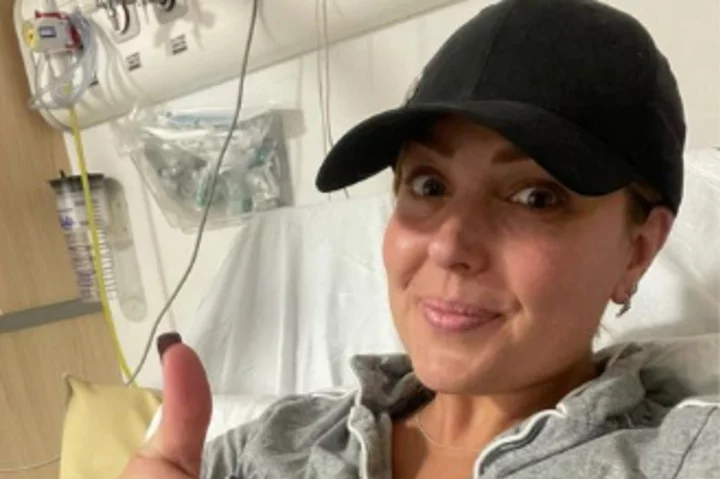
Strictly’s Amy Dowden finding it ‘so hard’ as she shares hair loss update during cancer treatment
Amy Dowden has shared an update on her hair loss after announcing she has breast cancer. The professional dancer, who is best known for appearing on BBC’s Strictly Come Dancing since 2017, revealed earlier this year that she had been diagnosed with stage three breast cancer. The dancer told fans that she underwent a single mastectomy after she was first diagnosed in May. Last month, however, she was told by doctors that she needed to undergo chemotherapy after further tumours were discovered following the surgery. Dowden, 33, has been keeping her fans updated as she navigates the treatment. In her latest update, shared on Wednesday (23 August), the dancer revealed she has been experiencing hair loss and was finding it “so hard”. Telling fans she had returned home after receiving treatment in the hospital, Dowden shared a picture as she held a clump of her hair, writing: “Welcome home,” with a series of broken heart emojis. She added: “So much everyday! So hard! One day at a time!” In a previous post, Dowden shared a video of her hair that had fallen out, writing: “The reality when I gentle comb,” with a broken heart emoji. Dowden told fans in a separate post that she had some blood clots but was “feeling good” following the treatment. “And I’m going home to my own bed,” she told fans. “Thanks again to the marvellous NHS! Got some blood clots but I’m feeling good other than a sore and swollen arm. Another hurdle along this journey. But again forever grateful to the nhs and my heroes around me.” Earlier this month, Dowden showed her followers the bespoke wig she had made to deal with her ongoing hair loss. Both Dowden and the owner of Be Unique Wigs by Charlotte shared a screenshot of their messages to Instagram, as Dowden thanked her for making the wig. Charlotte, the wigmaker, wrote: “I’ve been working on a wig for the beautiful @amy_dowden and just received this lovely message from her! “I love her,” wrote Dowden in the messages, asking if she could order another one. “Thank you so so so very much.” The wigmaker said in an Instagram post that it was an “honour” to make the wig for the Strictly professional. “I’m hoping it will give you some comfort in a difficult time, I’ve said many times on here... it’s not just hair!” she said. “Losing your hair can make such a difference to your confidence. It’s almost like losing part of your identity,” Charlotte added. After announcing her diagnosis earlier this year, Dowden told fans that she would not be able to dance in a competitive capacity on this year’s season of Strictly. “This year, it means I’m not going to be able to dance with a celebrity on Strictly, but I’m in such regular contact with the team – the BBC have just been utterly incredible,” she wrote in a post on social media last month. “The rest of the year looked very different to what was planned but hopefully I’ll enter 2024 cancer free and I’ll never take anything for granted and promise to live life to the full.” Dowden joined Strictly in 2017, and has competed in every series since, reaching the final in 2019 with kids’ TV presenter Karim Zeroual. Read More Former royal chef explains why Prince William and Kate’s children don’t eat with them Barbie drooling over Darcy? Why we still ardently love the BBC’s 1995 Pride & Prejudice Prince Harry to return to UK on eve of Queen’s death anniversary for charity event Amy Dowden shares pictures of new wig amid chemotherapy treatment for breast cancer How to help your teen with comparison culture on GCSE results day Women more severely affected by ME, study claims
2023-08-24 17:17

How to help your teen with comparison culture on GCSE results day
Whether your child’s GCSE results are high, low, or somewhere in between, one thing is inevitable – they’ll compare them with their friends’ grades. This comparison culture, which is far more pervasive because of social media, can leave teens feeling inadequate because their results are worse than their mates, or make their friends feel useless if roles are reversed. But although there’s no getting away from teenagers comparing their results both on and offline, what can parents do to try and limit the damage this it can cause? Former teacher Dr Julia Clements, principal educational psychologist at the children’s mental health charity Place2Be, says the comparison of results will undoubtedly impact some teenagers’ wellbeing. “Your teenager is bound to compare their results with their peers at the same school, but also through social media,” she acknowledges. “Although this comparison is inevitable, it may be harmful for your child’s wellbeing – especially if they’ve not done as well as expected. “Indeed, the term ‘compare and despair’ can be especially pertinent on days like today.” Sharon Davies, CEO of Young Enterprise, a charity which helps young people navigate the changing world of work, adds: “The pressure to measure up to their friends’ achievements can be overwhelming, leading to feelings of inadequacy or disappointment.” So how can parents help their teens? 1. Ask how they feel If your child is down on themselves and rating themselves negatively in comparison to their friends, they may reject any positives and praise parents provide, Clements warns. “It may be more useful, in the first instance, to ask them how they’re feeling, and to acknowledge and validate difficult feelings,” she advises. Such feelings may include disappointment, sadness, anger, shame, or feeling as if they’ve let themselves – and you – down. “If your child is feeling like this, it’s important to give them the message that you love them unconditionally and you’re proud and pleased to be their parent because of who they are – not because of the grades they achieve,” she stresses. 2. If they’ve done better than their friends… If your child has achieved good results, which may be better than some of their friends, then they’ll want to celebrate. But while celebrating is of course a great idea, Clements suggests: “You may want to talk with them about how to be sensitive and compassionate towards their friends who haven’t done so well.” 3. Help them turn a negative into a positive Consultant clinical psychologist Dr Nihara Krause specialises in teenage mental health and is working with the Talking Futures campaign to help parents engage their children in meaningful conversations about their futures. She says if a young person doesn’t get the grades they were hoping for, they may be highly critical of their performance in comparison to their peers. But she suggests parents show them how to turn their negative thinking around. “Parents should encourage their children to focus on recognising the approach they took to exams this time round and take steps to reflect on what they could do to achieve a better result in the future. Focus on what helps a young person gain their own personal best, no matter how their results compare with others.” 4. Don’t ask about their friend’s results or post about them Krause says parents should try to celebrate their child’s achievements for what they are and avoid asking about their friends’ results. “To avoid comparison, parents should also avoid sharing their child’s results on social media,” she says. 5. Don’t be too hard on yourself Clements points out that comparison culture may not just affect teenagers – if their results aren’t as good as expected, mums and dads might start comparing their own parenting during the revision and exam period with other parents whose kids have got better results. “As a parent or carer, you may also be drawn into unhelpful comparisons with others,” says Clements, “and you may question the amount of support you were able to provide your child in the run up to their exams. However, today is not a day for self-criticism or judgements – some self-compassion is important at this time.” 6. Reach out for support This might be the first results day many parents have gone through with their child, and while comparisons with other teens may well have been unhelpful, Davies points out that schools will have career advisers and teachers available who can offer support and advice. There are also online forums and blogs where those in similar situations share their experiences. She says: “No-one is expecting you to have all the answers – that’s why there’s support available.” Read More Charity boss speaks out over ‘traumatic’ encounter with royal aide Ukraine war’s heaviest fight rages in east - follow live Women more severely affected by ME, study claims 4 hacks to get teens off the sofa and get active – as study warns of heart damage Taking adult education classes may lower risk of dementia, study suggests
2023-08-24 13:58
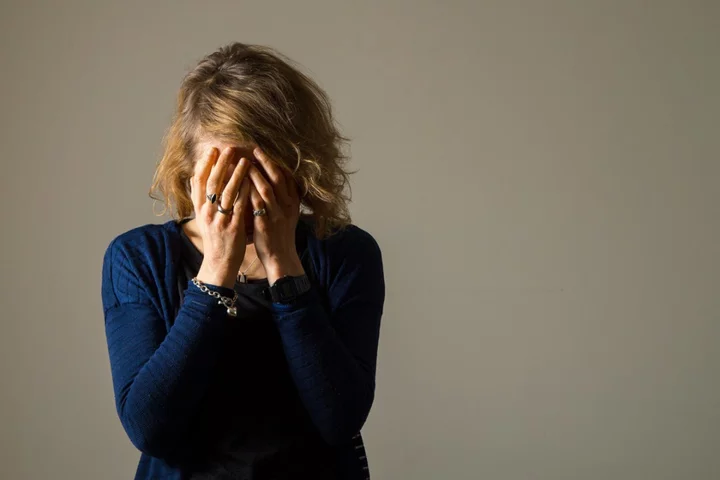
Women more severely affected by ME, study claims
Women with myalgic encephalomyelitis/chronic fatigue syndrome (ME/CFS) tend to have more symptoms and co-occurring conditions than men, according to the world’s largest study of the disease. The study, entitled DecodeME, reveals women who have the condition for more than 10 years are more likely to experience increasingly severe symptoms as they get older. ME/CFS is estimated to affect more than 250,000 people in the UK, of all ages and from all social and economic backgrounds. Its key feature, called post-exertional malaise, is a delayed dramatic worsening of symptoms following minor physical effort. Other symptoms include pain, brain fog and extreme energy limitation that does not improve with rest. Causes are unknown and there is currently no diagnostic test or cure. Experts from the University of Edinburgh analysed anonymous survey questionnaires from more than 17,000 people with ME/CFS. Two-thirds of women, and slightly more than half of men, reported at least one active co-occurring condition. Similarly, 39.2% of women and 28.6% of men reported at least one inactive co-occurring condition. We discovered that the disease is worse for women, in older people, and many years after their ME/CFS started Professor Chris Ponting of the University of Edinburgh A condition was considered active if the participant had experienced symptoms in the preceding six months. The most common active co-occurring condition was irritable bowel syndrome, with clinical depression, fibromyalgia, anaemia and hypothyroidism also featuring prominently. Women also reported, on average, more symptoms than men – 42 compared with 36. The most common of these symptoms were brain fog – a term commonly used to describe the cognitive impairment experienced by participants – unrefreshing sleep and muscle pain. These findings highlight the very serious impact ME/CFS has on women who are disproportionately affected Sonya Chowdhury, chief executive of Action for M.E Participants were also asked to define the severity of their illness from mild to very severe using definitions from the UK’s National Institute for Health and Care Excellence guidelines. Experts identified that being a woman and having ME/CFS for more than 10 years are risk factors for severe illness, with symptoms increasing in intensity as they age. Professor Chris Ponting, study lead from the MRC human genetics unit at the University of Edinburgh’s Institute of Genetics and Cancer, said: “ME/CFS is a devastating disease affecting a UK population the size of Derby. “We discovered that the disease is worse for women, in older people, and many years after their ME/CFS started. “Our hope is that DecodeME’s genetic results will shed light on why certain groups are more susceptible to ME/CFS than others.” Sonya Chowdhury, chief executive of Action for M.E. and chair of the management group of the study, said: “These findings highlight the very serious impact ME/CFS has on women who are disproportionately affected. “It’s important to also recognise the impact that it has on men who have ME/CFS and we thank the 20,000 men and women who have already signed up to take part in this very important study. “We still need more to join us, so if you are 16 or older, live in the UK and have a diagnosis of ME/CFS, please do take part now to help us decode ME at www.decodeme.org.uk/portal.” Read More Charity boss speaks out over ‘traumatic’ encounter with royal aide Ukraine war’s heaviest fight rages in east - follow live 4 hacks to get teens off the sofa and get active – as study warns of heart damage Taking adult education classes may lower risk of dementia, study suggests Indiyah Polack: I didn’t want to go on Love Island because of my acne
2023-08-24 13:17

Trump leans on Hill surrogates as he skips first GOP presidential debate
The day before former President Donald Trump announced he would not participate in the 2024 Republican presidential primary debate, GOP Rep. Marjorie Taylor Greene of Georgia campaigned at the Iowa State Fair on Trump's behalf.
2023-08-24 00:26

Taking adult education classes may lower risk of dementia, study suggests
Taking an adult education class could help lower your risk of developing dementia, researchers have found. Middle-aged and senior citizens in adult education have a 19% reduced chance of developing the condition within five years, a new study suggests. The findings also suggest that people who took the classes kept up their fluid intelligence – the ability to reason quickly and to think abstractly – and non-verbal reasoning performance better than peers who did not. First author Dr Hikaru Takeuchi, of Tohoku University in Sendai, Japan, said: “Here we show that people who take adult education classes have a lower risk of developing dementia five years later. “Adult education is likewise associated with better preservation of non-verbal reasoning with increasing age.” Here we show that people who take adult education classes have a lower risk of developing dementia five years later Dr Hikaru Takeuchi, Tohoku University Dr Takeuchi and his co-author Dr Ryuta Kawashima, also a professor at the Institute of Development, Ageing and Cancer at the university, analysed data from 282,421 people in the UK Biobank, which holds genetic, health, and medical information from approximately half a million British volunteers, They had enrolled between 2006 and 2010, when they were between 40 and 69, and had been followed up for an average of seven years at the time of the new study. Based on their DNA, people were given an individual predictive risk score for dementia, and self-reported if they took any adult education classes, without specifying the frequency, subject, or academic level. The study looked at data from the enrolment visit and third assessment visit, between 2014 and 2018. Those enrolled in the study were given psychological and cognitive tests, for example for fluid intelligence, visuospatial memory and reaction time. According to the study published in Frontiers in Aging Neuroscience, 1.1% of people in the sample developed dementia over the course of the study. It also found that people who were taking part in adult education, at enrolment had 19% lower risk of developing dementia than participants who did not. The results were similar when people with a history of diabetes, high cholesterol, cardiovascular diseases, cancer or mental illness were excluded. The researchers suggest this means the observed lower risk was not exclusively due to people with developing dementia being prevented from following adult education by symptoms of these known conditions. Dr Kawashima said: “One possibility is that engaging in intellectual activities has positive results on the nervous system, which in turn may prevent dementia. “But ours is an observational longitudinal study, so if a direct causal relationship exists between adult education and a lower risk of dementia, it could be in either direction.” Read More Charity boss speaks out over ‘traumatic’ encounter with royal aide Ukraine war’s heaviest fight rages in east - follow live Indiyah Polack: I didn’t want to go on Love Island because of my acne Everything you need to know about the UK’s first womb transplant Why are wellbeing experts concerned about the ‘lazy girl job’ trend?
2023-08-23 17:59
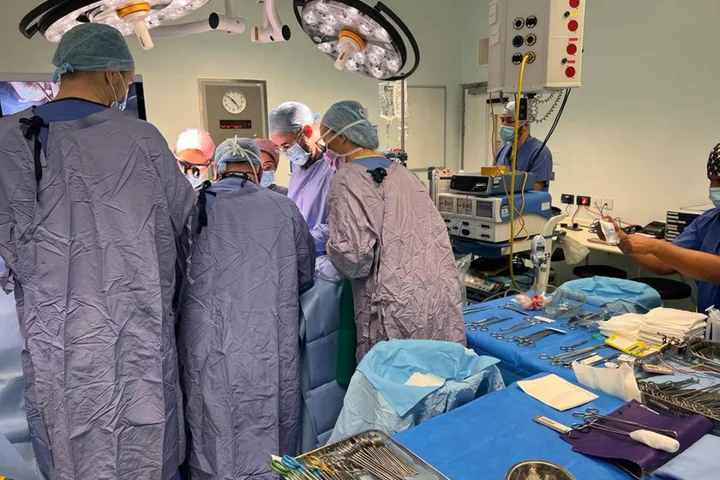
Everything you need to know about the UK’s first womb transplant
The UK’s first womb transplant means that, in future, dozens of women born without a functioning organ can carry babies of their own. – What has happened? Surgeons have performed the UK’s first womb transplant on a 34-year-old woman whose older sister donated the organ to her. In a complex procedure, the medical team removed the womb from the 40-year-old woman and implanted it directly into her sister. Both women have made a good recovery. – Have any babies been born? Not yet. Experts want to be sure the transplant is stable and the womb is functioning fully before the younger woman undergoes IVF. She has stored eight embryos and will have fertility treatment later this year in central London. The woman hopes to have more than one baby. Once she has completed her family, the womb will be removed to prevent her needing immunosuppressant drugs for the rest of her life. – Has the NHS paid for the operation? No. Each womb transplant costs around £25,000 and is fully funded by the charity Womb Transplant UK. This includes payment to the NHS for theatre time and the patient’s stay on a ward. The operations are only carried out at times when the NHS is not using the operating theatre, so they do not impact on usual NHS waiting lists. Surgeons and medical staff involved in the transplant have not been paid for the operation and have given their time freely. – Have other womb transplants been carried out around the world? More than 90 womb transplants have been carried out internationally, with most operations involving a living donor. The first successful womb transplant took place in Sweden in 2014, with the baby – Vincent – born to a 36-year-old woman who described him as “perfect”. In 2000, a transplant was performed on a 26-year-old woman in Saudi Arabia but the donor womb survived for only 99 days due to problems with its blood supply. To date, womb transplants have been carried out in more than 10 countries, including Saudi Arabia, Turkey, Sweden, the US, China, Czech Republic, Brazil, Germany, Serbia and India. – How successful is the operation? Data from the US shows that more than half of women who received a womb through a transplant in the US went on to have successful pregnancies. Between 2016 and 2021, 33 women received womb transplants in the US and, as of last summer, 19 of them (58%) had delivered a total of 21 babies. In 74% of those receiving a womb, the organ was still functioning one year after transplant and 83% of this group had live-born children. – Will there be more transplants in the UK? Yes. The second British womb transplant is scheduled to take place this autumn and experts believe a maximum of 20 to 30 per year could be carried out in the UK in the future. Transplants could help women born without a functioning womb and those who lose their organ to cancer or other conditions. Estimates suggest there are 15,000 women in the UK of childbearing age who do not have a functioning womb. – Will there be a shortage of donor wombs? Womb Transplant UK is running two programmes, one involving living donors and another with organs from people who have died. The living donor programme in the UK has so far focused on women with relatives who are willing to give their wombs. However, the team believes that in the future, the living donor programme will expand to include friends or altruistic living donors. This is currently more common in the US. The use of deceased donors is assessed by the team on a case-by-case basis. Read More Charity boss speaks out over ‘traumatic’ encounter with royal aide Ukraine war’s heaviest fight rages in east - follow live Why are wellbeing experts concerned about the ‘lazy girl job’ trend? How to check for cancer, as Morrisons puts NHS cancer advice in underwear labels Prostate screening ‘could save lives’ – the symptoms and risk factors you need to know
2023-08-23 15:52
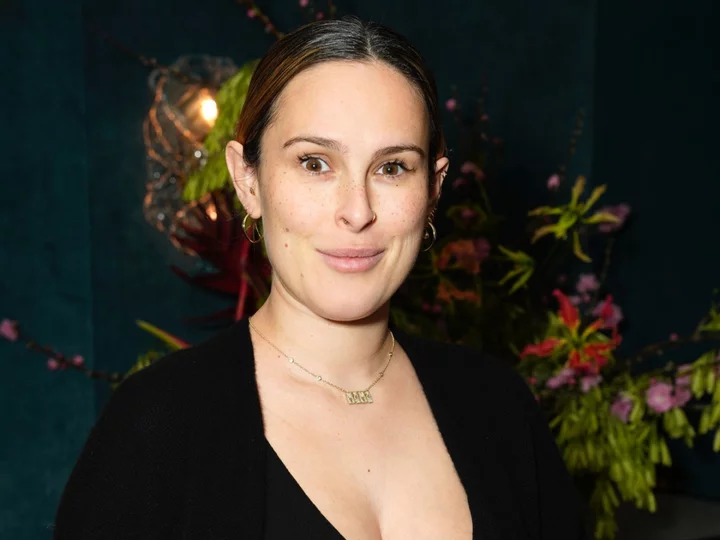
Rumer Willis reveals her daughter’s name was inspired by typo in a text
Rumer Willis has revealed that the name for her daughter, who she welcomed in April, was actually inspired by a text typo. The actress, 35, spoke candidly about her daughter, who she shares with boyfriend Derek Richard Thomas, during a recent interview with People. Willis went on to explain that while her daughter goes by Louetta, that wasn’t the name that she and Thomas had initially planned. “We were thinking about the name Loretta, and it was a typo,” she said. “Her dad and I were texting, and he left the ‘R’ out of Loretta, and it was just Louetta.” Willis - the daughter of Bruce Willis and Demi Moore - added that, after her partner made the typo in his text, she came to realise that she liked the name “Louetta” better than “Loretta”. “I was like: ‘Oh, I love that!’ I feel like it was one of those kind of divine intervention universe moments, and we figured it out actually quite early in my pregnancy,” she explained. However, according to The House Bunny star, she initially had a few concerns about if the name would be the best fit for her daughter. “What was scary was, I love this name, but oh man, is it going to be her name? Is it the right name?” she continued. What if she comes out and doesn’t look like this?” Despite her mixed feelings about the name during her pregnancy, Willis said she realised that she wanted to call her baby “Lou” once she was born. “I fell in love with the name so much, so early on, that I was then worried that it wouldn’t work,” she said. “But then she came out, and I mean, to me, at least right now, I was going to name her Lou, whether she was a boy or a girl.” She also added that both she and Thomas wanted to pick a name that had some “versatility” to it, before describing some of the different nicknames that her daughter could choose to go by. “If she doesn’t feel like a Louetta, she can go by Lou, she can go by Etta,” she said. “She can go change it up throughout her life. Whatever she wants.” Earlier this year, Willis took to Instagram to announce the birth of her first child. “Louetta Isley Thomas Willis. You are pure magic,” she wrote in the caption, alongside a snap of her then-newborn. “Born at home on Tuesday April 18th. You are more than we ever dreamed of.” Along with opening up about her baby’s name, Willis has also taken to social media to speak candidly about her experiences as a mother. Earlier this week, she hit back at criticism on Instagram after she shared a photo of herself breastfeeding her daughter. When Instagram users questioned her for sharing the selfie, with claims that she posted it “for attention,” the actress expressed how she viewed the ability to feed her daughter as a “privilege,” and accused critics of holding “a limited view of” breastfeeding. She continued defending her decision to post the photo, explaining how she wanted it to lessen the “shame” that women face. “I think it’s incredibly important to share because there is an incredible amount of shame that comes with being born into a female body,” Willis wrote. “And I want to lead by example in teaching my daughter that she doesn’t have to be ashamed of her body ever and that she can decide how she wants to share it.” Read More Rumer Willis shuts down criticism over breastfeeding photo with her child: ‘I am the happiest I have been’ Rumer Willis says she is ‘grateful’ to her body following birth of daughter Bruce Willis’ wife Emma Heming Willis says she is ‘not good’ amid his ongoing struggle with dementia Rumer Willis addresses criticism over breastfeeding photo with her child Rumer Willis says she is ‘grateful’ to her body following birth of daughter Serena Williams welcomes her second child with husband Alexis Ohanian
2023-08-23 05:27

Serena Williams welcomes her second child with husband Alexis Ohanian: ‘Beautiful angel’
Serena Williams and husband Alexis Ohanian are officially the parents of two. Williams, 41, shared a video to TikTok on 22 August to announce the arrival of her second child. The one-minute video started off with Ohanian looking at a computer and sitting at a table, before his wife sat down next to him. The pair were then joined by their five-year-old daughter Olympia. The video went on to show Williams leaving the room, before she returned with her newborn baby in her arms. After the tennis star exchanged a kiss with her husband, Olympia leaned toward them to give her little sister a kiss on the forehead. The clip ended with a few sweet snaps of the now family of four. In the caption of the video, which was set to Bazzi and Camila Cabello’s hit song, “Beautiful”, Williams wrote: “Welcome my beautiful angel.” Ohanian also shared a photo of himself and his family on Instagram to announce the baby news, revealing his child’s name: Adira River Ohanian. He continued the caption of his post by expressing his gratitude for his second daughter and wife, along with the doctors who cared for them. “I’m grateful to report our house is teaming with love: a happy & healthy newborn girl and happy & healthy mama,” he wrote. “Feeling grateful. @serenawilliams you’ve now given me another incomparable gift - you’re the GMOAT. Thanks to all the amazing medical staff who took care of my wife & our daughter,” he wrote. “I’ll never forget the moment I introduced @olympiaohanian to her baby sister.” In the comments, many fans and famous faces went on to celebrate the newest addition to Ohanian family. “Congratulations!!!! Such a beautiful family. I’m so happy for you guys!!!!!!,” LaLa Anthony wrote, while another fan added: “Congratulations on your beautiful baby girl! Such a beautiful family! I love her name.” A third commented: “Such a blessing! So happy for you both.” During the Met Gala earlier this year, the Grand Slam winner first revealed that she was expecting her second child. As she walked the red carpet alongside her husband in May, Williams showcased her baby bump in a black long-sleeves dress with a deep neckline and a white tulle skirt. She also celebrated the news on Instagram at the time, writing: “Was so excited when Anna Wintour invited the three of us to the Met Gala.” Earlier this month, Williams and Ohanian also shared that they had an adventure-themed gender reveal party to unveil the sex of their baby. In a video shared to the tennis star’s YouTube account, which documented the “baby shower slash gender reveal” event, Ohanian had arranged for a drone display in the sky to reveal to his wife that they were having a girl. @serena Welcome my beautiful angel ♬ original sound - Serenawilliams Prio to sharing the display, the Reddit founder pulled a gender reveal prank on his partner by giving her a decoy cake that was yellow inside, instead of the usual blue or pink to indicate what the baby’s gender is. The arrival of Williams’ second child came one year after she revealed that she was retiring from tennis. In an essay for Vogue in August 2022, she wrote that she was leaving the sport to focus on her family, as she expressed how Olympia had often told her that she wanted to be a big sister. “Believe me, I never wanted to have to choose between tennis and a family,” she wrote. “I don’t think it’s fair. If I were a guy, I wouldn’t be writing this because I’d be out there playing and winning while my wife was doing the physical labour of expanding our family. Williams continued: “Don’t get me wrong: I love being a woman and I loved every second of being pregnant with Olympia… But I’m turning 41 this month and something’s got to give.” Read More Serena Williams celebrates second pregnancy with ‘pre-push party’ Pregnant Serena Williams pokes fun at sister Venus’ hilarious response to gender reveal prank Serena Williams and Alexis Ohanian share gender reveal party footage with fans Serena Williams celebrates second pregnancy with ‘pre-push party’ Exercise apps could help boost healthcare workers mental health Alabama Barker shares autoimmune, thyroid disease struggle amid body-shaming comments
2023-08-23 03:50
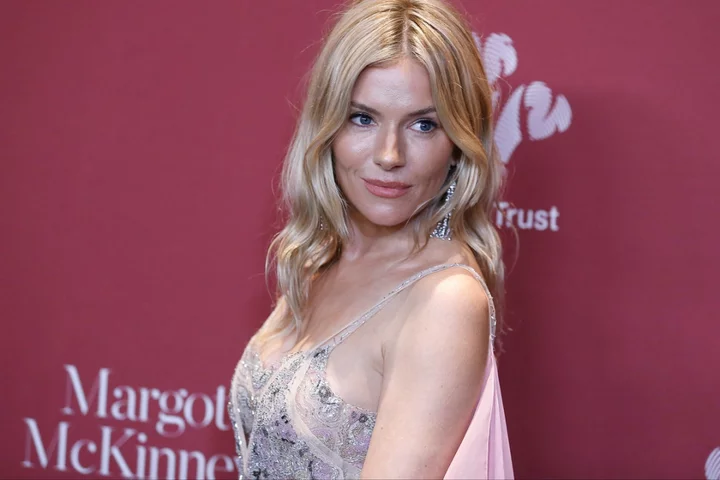
Sienna Miller pregnant with her second child
Sienna Miller is currently expecting her second child, it has been reported by multiple outlets. Photographs of the Lost City of Z star published by People magazine reveal Miller with a visible baby bump while on a beach holiday in Ibiza. The 41-year-old actor was pictured in a brown string bikini, with gold accessories, and could be seen smiling as she enjoyed the sea breeze. In one image, she wrapped a grey towel with a red stripe around her hips, accentuating her growing bump. Her second pregnancy comes 10 years after the birth of her first child, Marlowe, whom she shares with her former fiance, The Sandman star Tom Sturridge. According to the outlet, Miller was seen spending time with her boyfriend, actor Oli Green, in St Tropez before arriving in Ibiza. She has not commented publicly on her pregnancy and it is unclear what stage she is in. The Independent has contacted Miller’s representative for comment. Last December, Miller opened up about being a parent to British Vogue. She said she “loves being a mother”, adding: “It’s what I do best.” However, the American Woman star has also felt “pressure” to expand her family after turning 40. Speaking to Elle UK, Miller described questions surrounding whether she should have more children and why she has not as “a really loud noise”. “Biology is incredibly cruel on women in that decade – that’s the headline, or it certainly was for me,” she said. “Then I got to 40 and I froze some eggs. Having been really focused on the need to have another baby, I’m just like, if it happens, it happens. That kind of existential threat has dissipated.” Miller and Sturridge dated from 2011 to 2015, and their daughter was born in July 2012. They continue to be good friends and co-parents, and have been known to travel together and stay at one another’s houses as they continue to put Marlowe first. “It’s not like there’s a structure for custody,” Miller told Elle UK in 2019. “We make it work. It’s not conventional.” Reflecting on her relationship with her daughter, Miller told People: “When you are raising a child you see aspects of your character in that person, reflected back, and it’s the most loving, intense relationship that I have. There’s nowhere to hide. “She knows me, I know her. She’s really stubborn, which is very like me. I see her as her own person but I also see genetic things. She’s heaven, my kid.” Read More No music, no ball games, no fun: society is wiping out play Comedian Mark Watson says three-year affair was way of avoiding ‘the fact I wasn’t special’ Rihanna and A$AP Rocky reportedly welcome second child together Jana Kramer reveals she couldn’t brush her teeth for three months while pregnant Mom documents at-home abortion to destigmatise abortion pills Rumer Willis addresses criticism over breastfeeding photo with her child
2023-08-22 16:25
